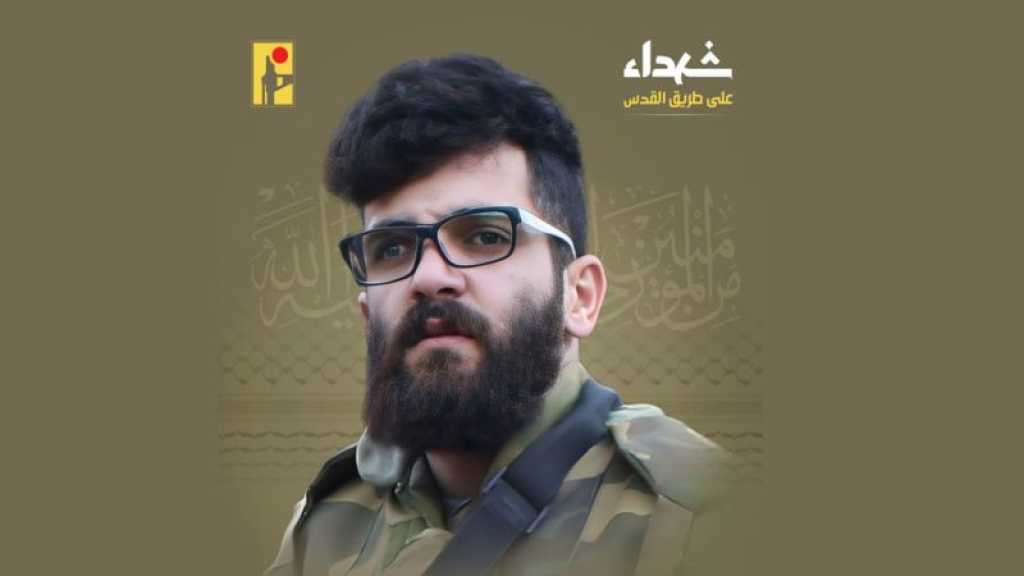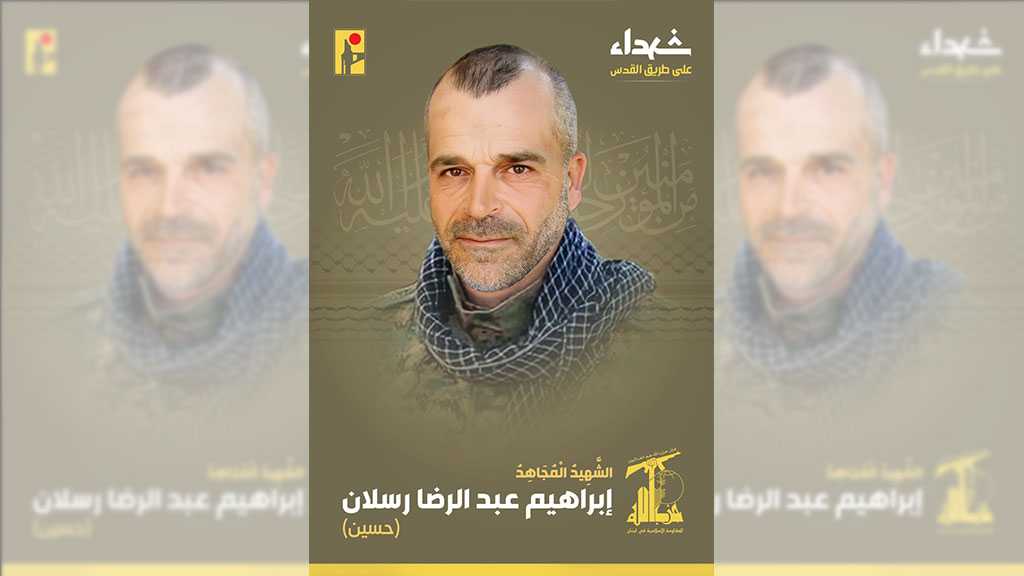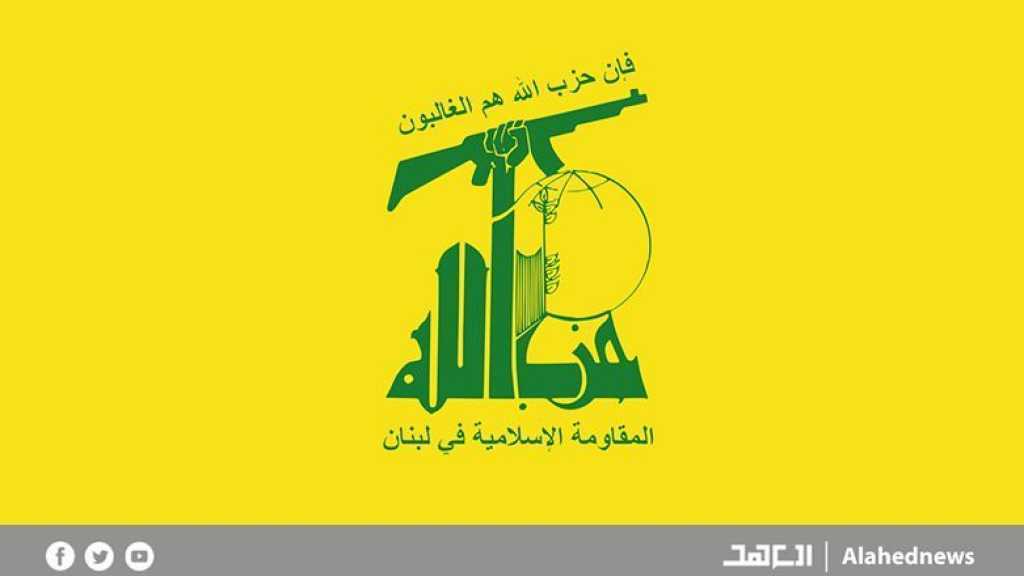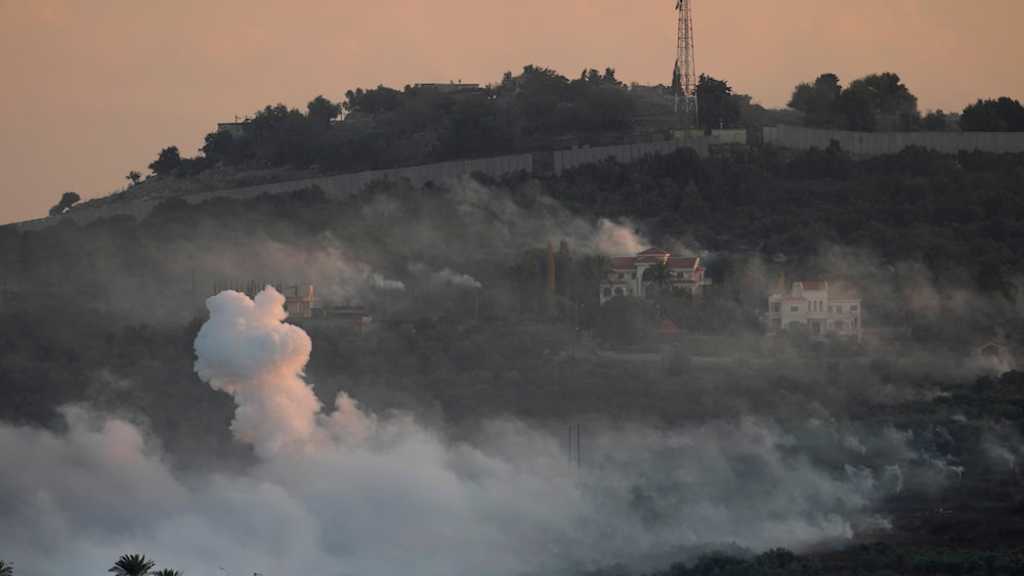
Full Text of Hizbullah Electoral Platform for 2009 Parliamentary Elections

Hizbollah Staff, 06-04-2009
The head of the Loyalty to the Resistance parliamentary bloc MP Mohammad Raad announced on Monday Hizbullah's electoral platform during a press conference he held at the Jinan Hall along the airport road in Beirut's southern suburb, in the presence of all Hizbullah candidates for the elections.
The following is the complete text of Hizbullah vision and electoral platform:
Fellow Lebanese...
On the threshold of parliamentary elections due on the seventh of June, we are all invited to take advantage of this opportunity in order to re-orientate political choices and to address the imbalance in power which produced a series of crises that negatively impacted the life of the nation and placed the country in the circle of instability.
The parliamentary elections, though seasonal, is greatly important at this stage as it is the entrance to the renewal of political life, the stabilization of national options, and a repeat of the declaration of commitment to Lebanon the country not the arena, the belonging not the mercenary. This obliges us all to deal with the elections with the necessary seriousness and responsibility.
Lebanon has been, over the past four years, in difficult throes particularly since the adoption of resolution 1559, some of the stipulations of which formed a gateway for internal civil strife and opened the doors of the country to the winds of regional and international interventions and sharp and dangerous divisions where international forces, the United States of America being at their forefront, took advantage of these divisions and tensions to draw the Lebanese arena into its sphere of influence, thereby flouting the national interests of unity, reconciliation and genuine sovereignty.
When we went to the dialogue table we were prompted by hope that this is an opportunity for the reformulation of national consensus beyond the reality of lineups and away from the dominance logic because we did, and still do, believe that preserving the homeland, its unity and its causes can only prevail in the spirit of understanding and dialogue, whereas we have always been supporters of Islamic unity in word and in deed, and among those working for national unity in good faith and effectiveness, out of our commitment to state-building and strengthening unity.
The Lebanese opposition with all its components of public figures, parties, and national and Islamic forces... has been able to restore the image of national unity which doesn't continue to be hostage to confessions and sects.
Then came the historic understanding between Hizbullah and the Free Patriotic Movement as a pioneer step in this context, particularly with regard to the Lebanese themselves and the promotion of internal peace and the development of shared qualities among them, and the work on developing genuine partnership.
Perhaps it [the understanding] is the first time a consolidation of a real and active meeting among the Lebanese occurs, since as Lebanese we have grown accustomed to such meetings being limited to leadership ranks, without having any effects or implications on the ground. This understanding has had a profound impact in consecrating unity on the internal front, and remarkable resilience in the face of the Zionist aggression and its repercussions in July of the year 2006.
This war of aggression formed the height of international onslaught against Lebanon. It aimed at breaking the Lebanese will to resist and to completely subjugate Lebanon within the context of what was then called 'the New Middle East project'. Nevertheless, the great achievements and remarkable heroic acts achieved by the mujahidin of the Islamic Resistance turned the brutal aggression - backed by international and regional powers- into a shamefaced defeat with repercussions ranging from a comprehensive defeat of all the Zionist entity's components to the fall of their political and military crew and the dispersion of illusions of control over the region by the U.S.
Lebanon's victory in the war was radiant, admitted and confessed to by the whole world, even by the enemy itself, except for a few who ill-received the scene of cohesion between the heroic resistance, the army and the people. Rather than making it a matter to take pride in and a source of national honour, some sought to spear it [the victory] with arrows of doubt, slander and attenuation.
Fellow Lebanese...
The resistance you have wagered on, and given your confidence to, has through your sacrifices along side it produced you the honourable historical position of protecting the country and the future of its generations. This resistance was, still is, and will continue to be at your side through all important matters and calamities.
Thanks to the great sacrifices and offerings made by its martyrs, wounded and prisoners... and at their forefront are offerings made by martyr leaders Sayyed Abbas al-Moussawi, Sheikh Ragheb Harb, and Hajj Imad Moghnieh. This resistance which has achieved the liberation of a greater part of the Lebanese territory as well as the largest number of prisoners and bodies of martyrs... is determined to complete the liberation of the remaining occupied territories, particularly in the Shibaa Farms and Kfar Shuba hills.
While it places its powers and capabilities in the context of strengthening Lebanon's strength, in this same context we believe that any defense strategy around which a consensus is be formed, must start from the axiom of benefiting from the existing capabilities of the resistance, the army, and the people, alongside a plan to develop, strengthen and integrate these capabilities, particularly those of the Lebanese army, to be able to confront the "Israeli" occupation, threats and ambitions in our land and water resources.
Fellow Lebanese....
Consolidating the bonds of national unity, strengthening stability and civil peace, state-building on the rule of law and institutions, the preparation of sound environments for a true culture of national citizenry, the rehabilitation of the spirit of belonging to nation and land, the achievement of brotherhood, justice and equality among citizens... are, from our point of view, all duties that ascend to become sacrosanct.
Therefore, our adherence to the national charter, as expressed in the Taif Accord and all chartered items included in the constitution, urge us along with you to struggle for the production of a balanced authority, one that respects and implements this charter and does not depart from it, nor abuse it or its requisites; an authority entrusted with national destiny, proper application of law, respect of freedoms and management of public affairs... to address social, economic and developmental issues and problems, an authority which does not accumulate debts nor squander public funds, that does not cripple the judiciary nor cause regulatory institutions to be made absent, an authority that does not upset the national balance in development and administration, an authority that does not, through its policies, widen the economic and social gaps between the Lebanese, an authority that concerns itself with supporting the national army's capacity, to strengthen its potential, and raise the readiness of all security forces, one that fights crime rather than toy with it and use it as a scarecrow for intimidation and a path to politicization.
We insist on Lebanon being a home for all its citizens, on our hostility to "Israel". We support and back our Palestinian brothers in their struggle to liberate their land and sanctities. We reject all forms of settlement, partition and federalism. Our desire is to build the best distinguished brotherly relations with the Syrian Arab Republic and develop cooperative relations with other brotherly and friendly states. These represent a system of constants and axioms for us from which we will not depart.
The Doha agreement formed a real opportunity to escape the crisis that ravaged Lebanon. A President of the Republic was elected and a government of national reconciliation was formed. An electoral law was agreed on with elections to be held on time. This agreement formed a necessary station that led to a breakthrough in the internal situation during a sensitive and delicate phase. We believe that the spirit of accord that contributed in its formulation and the climate of reconciliation that launched it... represent a gateway to strengthening national partnership and consensus work in the interests of Lebanon and the Lebanese.
In political reform:
A-Abolition of political sectarianism:
The formation of the national committee for the abolition of political sectarianism, as stipulated in the Lebanese national accord document, to commence its work and take practical actions in implementing the recommendations based on its findings.
B-Election Law:
The proper entrance to reform lies in the completion of a modern electoral law based on relative representation, certainly alongside completing the constitutional amendment on lowering the voting age to eighteen, in addition to the completion of another amendment, the separation of Parliament from Cabinet.
C- Balanced Development:
The principle of balanced development represents one of the pillars of political reform, the reason why it was stipulated in the covenantal constitution's preface. In order to achieve this, we call for the reintroduction of the Ministry of Planning, subject to ten or five-year plans, which observe the needs of all regions in the various sectors.
D- Decentralized Administration:
The Constitution's preface stipulates the reconsideration of administrative divisions, taking into account national assimilation, the preservation of co-existence and administrative decentralization according to: granting broader administrative powers to micro-units (municipalities, governorates, provinces), designed to enhance development opportunities, and facilitate a speedy completion of transactions and administrative tasks.
E- Judicial System:
Since the Lebanese constitution states that the judiciary is an independent authority, alongside the two legislative and executive authorities, and since a fair and impartial judicial system guarantees the rule of law and safeguards the rights of individuals and the community as a whole, and thus no reform can occur without political reform, hence we see the need to work on completing and implementing the law which deals with the organization of the judiciary under the authority of a the highest independent judicial body.
In Administrative Reform:
Administrative reform is a significant challenge in all societies, sleek and efficient management is a characteristic of the modern state, whereby management reform aims to alleviate citizens' burdens, mobilize energies and skills, and the swift and satisfactory completion of tasks.
In moving toward this goal, work efforts should be focused according to the following:
a - A comprehensive plan of guidelines drawn up of management and its needs, which describes those needs and fills in vacancies.
b - Focus on scientific competence and practical skills.
c - Modernization, automation, networking of information and fighting bureaucracy.
d - Activation of control and accountability, strengthening and fortifying the control institutions (the Civil Service Council, Central Inspection, General
Board of Corrections, the Office of Accounting).
e - The development of laws and regulations employed in the management and budget area, to ensure speedy accomplishment of tasks, stopping waste and elimination of bribery.
f - To adopt a scientific and systematic plan in the process of recruiting staff, especially senior staff, (I and II) in the context of promoting efficiency and good performance in the public administration.
g - Work on implementing the law to establish the two districts of Baalbek-al-Hermel and Akkar, and completing the issuance of practical decrees in this regard.
In Economic and Financial Reform:
Since the independence Lebanon has suffered a lack of researched economic and development visions that are based on available resources, national needs and regional relevance, the reasons why the process of economic-performance development and improvement is random which has led to a decrease in productive sectors, congestion in others and the unreasonable oversized swelling of others still, leaving the Lebanese economy with the prevalent characteristic of service and revenue-focus, resulting in the destruction of industries that are productive and labor absorbing, such as agriculture and national expertise such as manufacture.
In order to enter real economic reform it is necessary first to adopt a new role for the state, through the transition from the reality of the neutral state, with its limited social and economic contributions, to the reality of the state that is responsible for achieving development and justice, therefore, work is required on the following tracks:
1. Developmental: through balanced development of the sectors and regions, developmental partnership between public and private sectors, and a fair distribution of gains.
2. Economic: through the achievement of lasting and stable growth in gross domestic product, raising competitive productivity of economic sectors, and regional integration (Arab and Islamic markets).
3. Social: the Reduction of unemployment levels, fighting poverty, developing the means for redistribution of incomes and the provision of basic services.
4. Financial: break the vicious circle of public debt and reduce its cost, reduce the budget deficit, fight squandering and bring about fair tax reforms.
5. In this context emphasis should be placed on the need for the development and continuance of a policy of stimulating the productive sectors, such as agriculture, industry and tourism... by providing soft loans, provision of tax incentives, encouraging small enterprises to merge, strengthening collaborative work, provide equipment guidance and support, increase irrigated areas, study the needs of both local and foreign markets, move toward agricultural industrialization trend, develop the animal production sector and subsidize exports of all kinds.
The ultimate goal is to fight poverty and social marginalization, this requires joint efforts from both public and private sectors, to focus on economic activities and provide employment opportunities, to be directed toward rural and remote areas.
The Education Sector:
The Lebanese University (LU) is considered the most important higher education institution in Lebanon in terms of its wide coverage, the broad range of specializations it provides and its number of students, particularly those belonging to low-income families. It is also assumed that this university shapes the future generations of the nation. This requires efforts of support and development through the implementation of the law specific to the LU, which makes immune its financial and administrative independence, ensures its development and enhances its scientific research capabilities.
Addressing outstanding issues is also required, such as full-time professors, promotions, support of the contracting fund and the revival of the LU Students National Union.
As for the general education sector, duty calls for the introduction of a comprehensive education scheme, with emphasis on raising the level of teaching qualifications to provide schools with the necessary requirements, secure their fuel supply for winter seasons, advance the school fund, re-map the distribution of schools according to balanced development requirements, in addition to developing educational institutes, education inspection and the promotion of its powers, implementing compulsory education alongside making education free of charge, promoting public, vocational and technical education and address the longstanding demands of teachers from different levels in a positive and responsible spirit.
Civil Society Organizations:
In the context of developing a sense of national responsibility, the development of party and trade union work should be sought, and to allow civil society institutions and organs to become active in playing a vital ancillary role, to play the role of an active observer of the formal institutions performance, leading to the promotion of community awareness for exercising its duties in the management of public life; in this context, we focus on the following areas:
1. Media: Freedom of expression should be maintained and protected as stated in the preface of the constitution, as an inalienable right that cannot be harmed in the framework of safeguarding the law, hence the freedom of media work. The review of certain laws particularly the law on publications, in a manner that removes the looming threat off the media.
2. Women: Action to strengthen the role of women and the development of her participation in the areas of political, cultural, educational, informational and social activities, and to benefit from this role in the creation of a psychological and moral balance in society.
3. Youth: to provide care for the emerging generations and youth groups, to develop their energies and talents, and direct them towards national, humanistic and higher goals, to protect them from corrupt thoughts and from the means and tools to corruption and profligacy.
4. To combat deviation and harmful traits in our society, whether through the media or other means, to focus on educational and media guidance, to warn of the dangers of the spread of corruption and the decaying of values, and the strict control of scenes and images that impose on public decency and harm the humanistic image of women.
5. To protect the privacy of citizens through banning indiscriminate wire-tapping of their telephone calls, to respect the laws governing this issue, and to call to account any would be violators, no matter who they are.
Improvement and Development of Social Services:
In the light of our conviction that the State should never resign its fostering role, and that it does not act impartially or indifferently toward the citizens' needs, work must focus on improving the services in the areas of health, education, housing and social welfare; of these we mention the following:
A- To activate the public health sector, mainstream the principle of health care and prevention, put an end to the monopoly in the pharmaceuticals market and consolidate health funds.
B- Support the development and reform of the National Social Security Fund, to broaden its base of beneficiaries.
C- To develop a housing strategy, which takes into account the overall development of all regions in addition to the development of state supported housing loans.
D- Complete the process of planning and land classification, speed up the completion of the annexation and partitioning works, and address the problems of common and jointly owned property and building property violations.
Energy and Resource Protection:
The waste in water and natural resources is one Lebanon's long term problems, despite the high rainfall percentage and the many other water sources, suffering [from its shortage] is still significant, especially in times of scarcity, and for that action is needed on the following:
A - The protection of water resources, especially those threatened by the "Israeli" enemy.
B - Accomplishing the planned Laitani Project with a water level of 800 meters.
C - Serious work on accomplishing the projects of dams and ponds, according to a specific timetable.
D - The expansion and rehabilitation of irrigation systems, especially in agricultural areas.
E - The completion of the establishment and rehabilitation of domestic water systems.
In the Electricity Sector, what is needed is the completion of feed lines, the modernization of production plants, addressing technical wastage and combating violations and the expansion into new environmentally friendly production means.
As for the Communications Sector, what is required is the preservation of this national wealth through the sector development and improving its services, along with providing more facilities for the consumers, with a low priced better service being always the goal.
Environment Protection:
The environment in Lebanon has been exposed to a wide process of destruction and violation: from burning of forests, to the work of indiscriminate cutting of trees, to the chaos of stone quarries and crushing plants, to polluting rivers with sewage, to the indiscriminate dumping of solid wastes, all of which call us to sound the alarm and declare a state of national emergency to achieve the following:
A - The adoption of a plan of guidelines that is scientific, environmental and final for the stone quarries and crushers.
B - To expedite the completion of the construction of sewage plants in all regions.
C - Run a modern study for best solid waste disposal methods, for converting waste into energy rather than burying in the ground.
D - The provision of effective fire combating means (aircrafts etc...), stringent prevention of tampering with the environment, and fighting infringements on sea shores and river banks.
E - Launch a national campaign to renew the greening of Lebanon, in cooperation with all organizations and associations, both domestic and foreign, who are interested in this matter.
Dear Lebanese,
This is our vision and commitment
This is our pledge, the pledge of the martyrs, of Sayyed Abbas, Sheikh Ragheb and Hajj Imad, and just as we have always been, we will stay with you and by you, faithful to and supportive of the resistance;
based on this vision and this platform we approach you asking for your valued and precious confidence.
Peace and God's mercy and blessings be upon you
Hizbullah
Comments
person Samira Bachir
2009 Electoral platform
Great program, it what Lebanon needs.person Joe USA
2009 Electoral platform
Excellent program: am sure Lebanese people will understand and vote accordingly!person Joseph
In awe.
Full heartedly, Respect!
Hezbollah Mourns Martyr Hussein Nimer Masarrah
3 months ago

